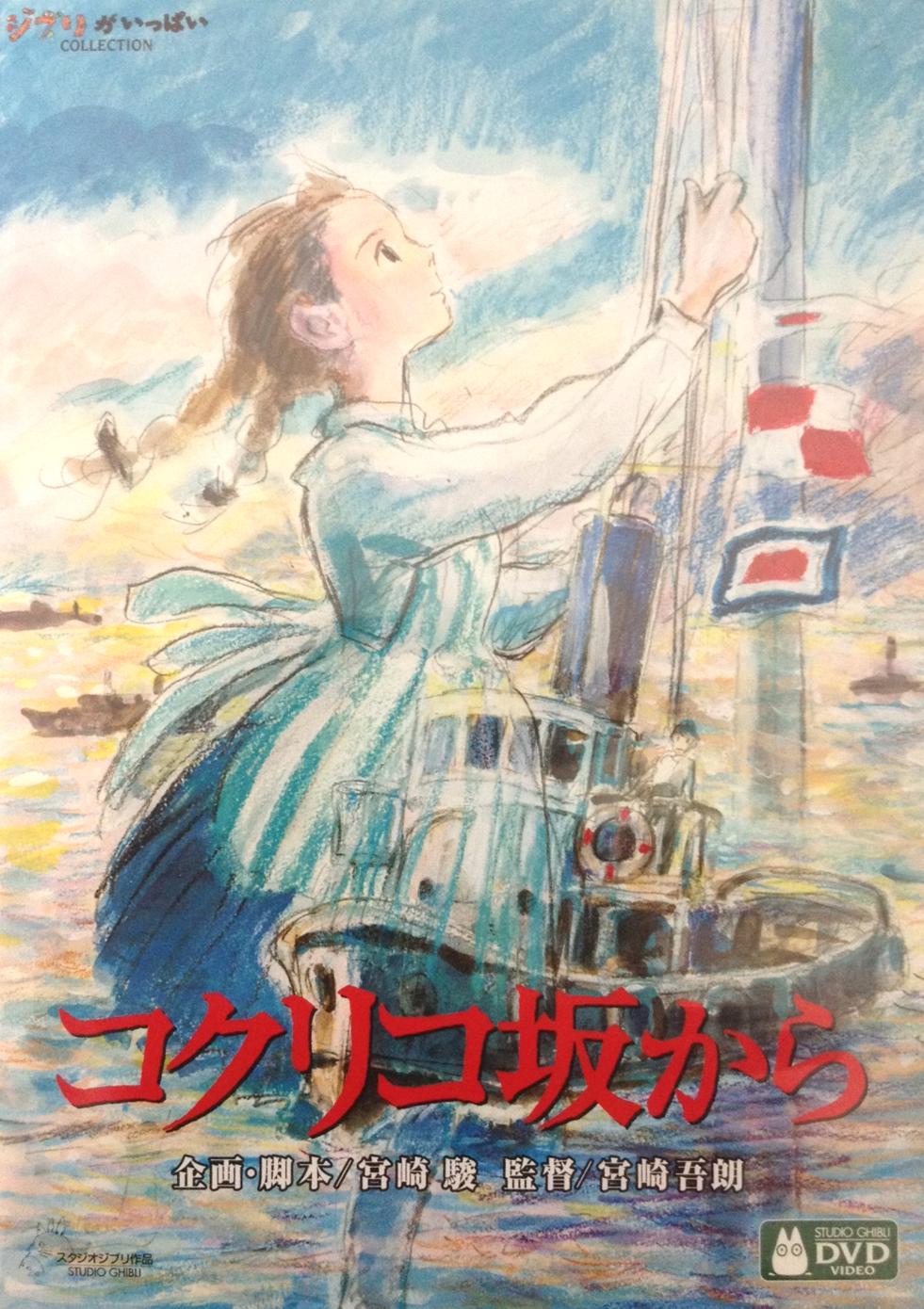Studio Ghibli brings us another heartwarming film, From Up on Poppy Hill, a poignant tale of identity, love, and change. Directed by Gorō Miyazaki and written by Hayao Miyazaki and Keiko Niwa, the story follows Umi Matsuzaki (voiced by Masami Nagasawa) and Shun Kazama (Junichi Okada from V6) navigating their high school life in 1963 Yokohama, Japan.
Viewers can expect beautiful animated art in From Up on Poppy Hill as with all of Studio Ghibli titles. Transporting us back to a post-war Japan, the sentimental story begins with a strong-willed, independent heroine, Umi Matsuzaki.
Sixteen-year-old Umi manages her family’s boarding house, Coquelicot Manor, that overlooks the Port of Yokohama. The heavy responsibility of caring for both her family and the two lodgers falls on the young girl as her mother is studying abroad. Every morning, Umi will raise a pole of signal flags diligently with the message “I pray for safe voyages”. It is a melancholic tribute and a hopeless yearning for her father who is lost at sea, during the Korean War.
Introducing the male protagonist, Shun Kazama is a brave, outspoken, and eloquent boy. A member of the journalism club, Shun had penned a poem when he caught sight of the flags Umi had melancholically raised everyday. Their paths crossed when Shun performed a daring jump from the roof in their school. This has marked the start of an unusual friendship, with Umi assisting Shun and his friend, Shiro Mizunuma (voiced by Shunsuke Kazama), for their school publication.
Quartier Latin, a dilapidated Meiji-era building that is poorly maintained, houses all the student clubs in its antiquated splendour. The first difficulty arises when Quartier Latin is planned for demolition, to pave way for a modern architect in lieu of the upcoming 1964 Summer Olympics. It is an era of transition, when the country is moving on from the post-effects of the bloodied war to the contemporary with a booming economy.
The nostalgia for the past as one moves forward to the present is evidently captured in the film. The entire student body has gathered in a united front, deciding to renovate the building to showcase its former glory in the effort to protect their history. In spite of their efforts, the Kanagawa Prefectural Board of Education uncompromisingly opted to proceed with the demolition. A last-ditch effort, Shun, Umi, and Shiro headed to Tokyo directly in hopes to convince the school board’s chairman, being incredibly brave and resolute to take things into their own hands.
Throughout their turbulent high school life, Umi and Shun have become closer, supporting each other while attempting to protect the beautiful landmark many students have called home. In the meantime, Shun’s birth is also unveiled, in turn realising that he could be the long lost child of Umi’s deceased father. Grappling with his blooming feelings for Umi, Shun is unable to face the girl he likes in the possibility that they could be siblings. This led to a strain on their friendship that leaves the two confused and in pain.
Ultimately, the conflicts come to a sweet close, the clear pacing of the story giving way to a fitting ending. Umi’s mother has finally returned home, revealing Shun’s birth mother and father have unfortunately passed away. Umi’s father had temporarily taken Shun under his care, registering the orphan under his family registry before eventually leaving him to the Kazamas. Shun’s doubts are cleared by their parents’ friend as well.
On the other side, the chairman is unequivocally impressed by the students and their passion for the historic building, agreeing to preserve Quartier Latin. Shun and Umi then profess their feelings for each other. The curtain finally closes to Umi who resumes her routine of raising the flags, now for all in the seas.
From Up on Poppy Hill speaks about the aftereffects of the wars, the tragedy that comes when families are torn apart and the heartrending pain of waiting for someone who will never return. Orphans with no known relatives are implied to be left in limbo, with uncertain futures during times when the society is so desperately trying to rebuild itself. The film also depicts the strong student activism, reflecting the actual campus activism back in the 1960s when students were motivated to speak strongly for what they had believed in.
The warm film has wonderfully depicted the lives of a teenager back in 1960s Japan, of the uncertainty, the love, and the pain they had felt growing up in a life that was marred by wars. The music scores are aptly woven into the film, amplifying the emotions of each scene as the viewers watch the story unfold in the shoes of Umi and Shun.
The beauty of the scenery is distinct; the intricate details of the ships, the cars, the streets, and especially the Quartier Latin have evoked a desire to visit the past. From Up on Poppy Hill is more than a tale of the old Japan; its message is clear, it is pertinent to understand and respect the past in order to move forward. And that, is the beauty of life.













